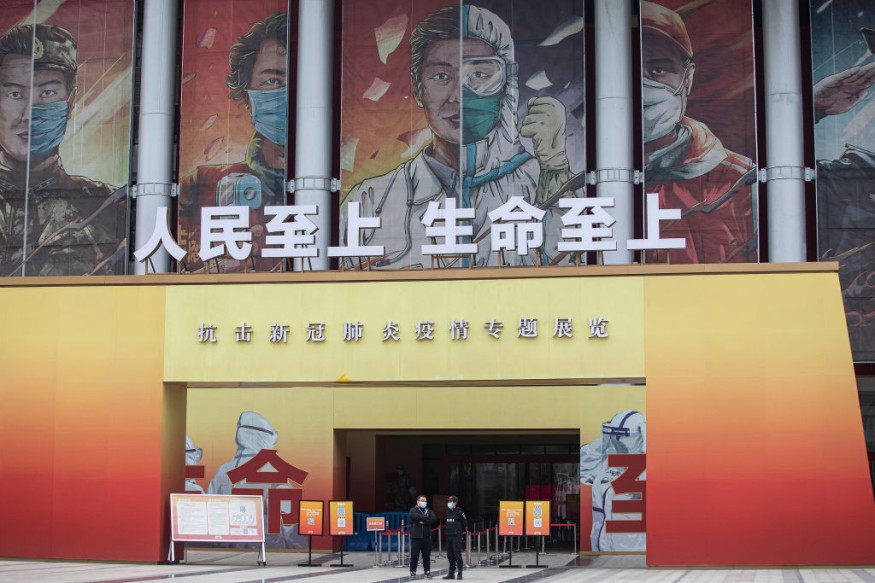WHO Panel to Recommend Deeper Study Into First Known COVID-19 Patient

A World Health Organization (WHO) panel will recommend a deeper contract tracing of the first COVID-19 patient in Wuhan, China, including a probe on the wildlife market believed to be where the coronavirus originated.
Citing a CNN report, The Hill reported that experts involved in the probe into how the virus originated found it "implausible" that Chinese officials did not investigate them.
The WHO panel will call on Chinese authorities to further investigate the first known patient's contact history, which was believed to have contracted the virus on Dec. 8, 2019.
Investigators have yet to identify the first COVID-19 patient by name but have said that the patient was a white-collar worker in his 40s and did not have a history of traveling far from home.
A member of the WHO investigation team, Peter Daszak, said that the group had met with the first COVID-19 patient and that he informed them that his parents had visited a wet market in Wuhan shorty before he was infected with the COVID-19.
"Then he said at the end of the interview -- and it was all being translated and the translator, specifically said -- 'My parents visited a local community wet market'," Daszak said in the report.
Daszak noted that the market in question was separate from the Huanan seafood market, where the virus was initially thought to have originated. He added that the use of the "wet market" term, especially "under this political constraint," tells them "something very significant" that other markets in Wuhan also sold wildlife products.
Related story : WHO Warns the Global Pandemic Will Not End Soon
China's Failure to Probe the First COVID-19 Patient
According to a Daily Mail report, scientists have scrutinized the slow pace of China's investigation into the origins of COVID-19. Reports claimed that the "patient zero" was not properly contact traced.
Professor Maureen Miller, an infectious disease epidemiologist at Columbia University, said it is implausible that this research has not been done.
"It's not realistic, given they have world-class scientists there, and the technology invested in over the last 20 years," Miller said in the report.
Miller noted that the patient's infection on Dec. 8 without direct contact with the wet market or travel showed that there was already community transmission. She added that in the short and long-term, it is detrimental to China to try to hide the fact that this virus started in their country, which then spread around the world.
Professor Yanzhong Huang, a senior fellow for global health at the Council on Foreign Relations, said it was surprising that China has not invested in investigating two important clues like that. He also said that the country had recently mobilized the entire Beijing to find the outbreak's source.
Huang said they have top-notch scientists who are much knowledgeable than most in recognizing the significance of this information.
Meanwhile, the WHO panel will also recommend an immediate probe into the Huanan seafood market's supply chain. Chinese scientists gave the WHO team a list of farms in Yunnan, Guangxi, and Guangdong, according to a National Review report.
The said areas supplied the Huanan seafood market in Wuhan with wildlife, Daszak said.
Subscribe to Latin Post!
Sign up for our free newsletter for the Latest coverage!
© 2025 Latin Post. All rights reserved. Do not reproduce without permission.















